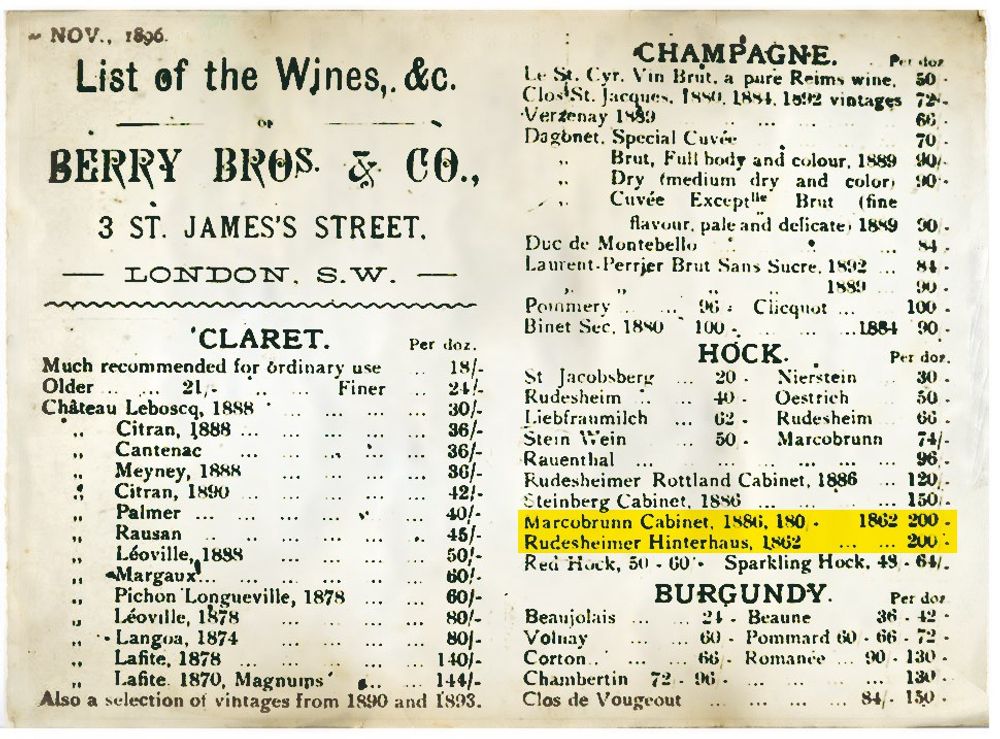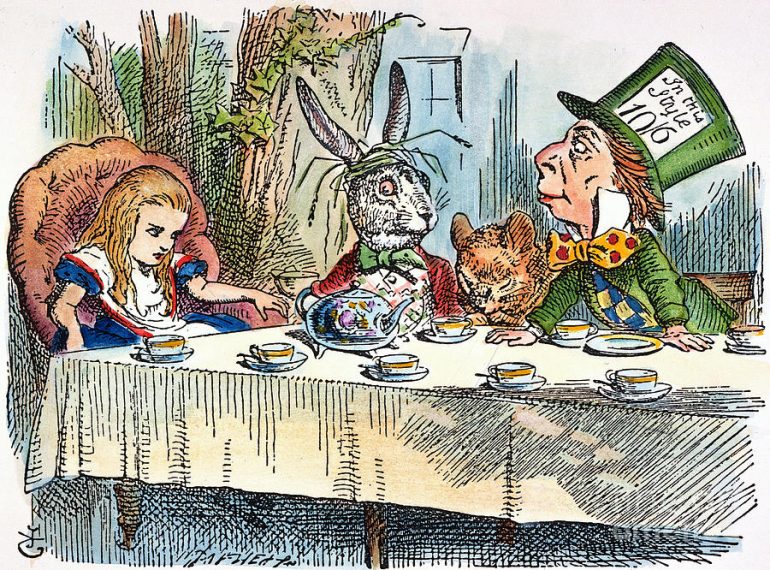How we go about selling wine is often completely in contradiction to how the average consumer, knowingly or not, actually wants to buy it. Joe Fattorini explains why psychology and knowing which cognitive buttons to press could help us all sell better and more wine.

Joe Fattorini: we have ways to make you buy wine…
Most wine lists are upside down. You can sell more if you increase your prices. People like the sound of some wines more than others.
Welcome to the Alice in Wonderland world of wine psychology. A mad hatter world. But also the world we live in. Where mad restaurateurs write wine lists that convince people to spend as little as possible.
What do you do if you want to encourage people to spend more? If you want people to drink better? Come to the wine psychology masterclass in the Innovation Zone at The London Wine Fair at 3.30pm on Monday May 21 and find out. It will take a very different look at how we can all sell wine better. How insights from psychology, advertising, branding and behavioural economics influence customers to enjoy wine more. To feel better about buying wine. And to improve your bottom line.
For starters, you probably wrote your wine list picturing a customer a bit like you. Keen on wine. Looking for a lovely drink. But what if you had to write a wine list for someone who doesn’t like wine at all? The list you’d write would be very different. But it would also be much more better at selling to most customers.
Appealing to ‘satisficers’
Most customers are far more fearful they’ll choose a bad wine, than motivated to buy an excellent one. In the jargon, they are “satisficers”. In contrast to trade types like us who are “optimisers”. Satisficers choose the second-cheapest wine on the list. They know it’s unlikely to be rubbish, like the cheapest. Or carry the risk of financial waste in more expensive wines. But it’s guaranteed not to be the worst. So to persuade people to spend more on wine, we shouldn’t be telling them why wines are good. We should focus on reassuring them they’re not rubbish. In our masterclass we’ll look at how.
Some insights are so simple it’s astonishing they’re not seen more. Why do we list wines from cheapest to most expensive? Especially when listing them from most expensive to cheapest increases the price people are happy to pay. It’s the power of “anchoring”. It’s pervasive and well-known. And it’s time you used it to benefit your business.
Wine lists by algorithms

We’ve been trying different ways to sell wine via wine lists for centuries, but which way is the most successful?
You could remove all £ signs to enjoy another sales bump. Or start charging more for some of your wines. I’ll bet you price according to some algorithm involving a mix of a percentage uplift or cash margin plus VAT. Essentially “computer says £35”. Wouldn’t it be better to charge a price we know the customer wants to pay? Particularly if the customer wants to pay more? And the evidence says they do.
You can transform how you talk about wine too. Do you describe wines based on your assessment of the wines? A pick-and-mix of terms from the UC Davis Flavour Wheel and your WSET tasting tutorials. Isn’t a better idea to find out what words make people want to buy a wine first, and use those persuasive words? We know “fruity” and “supple” are a turn ons, but “acid” and “wood” are turn offs.
To really power up your descriptions, you need to unlock the power of words. To communicate emotions, not facts. Use trigger words. Tell stories and make promises. Use flattery, empathy and the hard-wired nature of our brains to persuade and reassure.
For all the people sharing their passion for wine and encouraging consumer education and engagement, the value of sold wine bumps up with duty and inflation. A fifth of people don’t drink at all. A quarter of young people don’t drink at all. Sharing our passion, education and love of wine is no longer enough to engage people.
To persuade customers to sell more. It’s time to employ the insights of advertisers, advances in psychology and the understanding of behavioural economics. It’s time for Alice to explore the wine wonderland.
- How to sell better and more wine using psychology session at the London Wine Fair takes place in the Innovation Zone on Monday May 21 at 3.30pm. Chaired by The Buyer’s Richard Siddle it will include a panel debate between Joe Fattorini, writer, consultant, broadcaster, co-host The Wine Show, Phil Barden, Decoded Consultancy, Andy Maslen, Sunfish Consultancy, author of Persuasive Copywriting and Alex Ririe, strategic development at Coley Porter Bell.






























